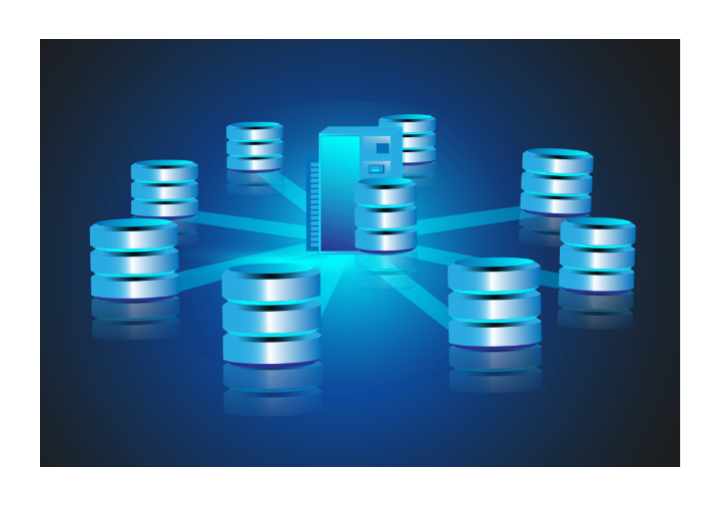How Centralized Data Systems are Transforming Business Intelligence
Business intelligence (BI) is the process of gathering, analyzing, and interpreting data to inform decision-making. In the past, this process was largely manual and time-consuming, relying on manual data entry and analysis. However, with the advent of centralized data systems, businesses are now able to access and analyze data more quickly and accurately than ever before.
Centralized data systems are transforming the way businesses use data to inform their decisions. By consolidating data from multiple sources into a single, unified system, businesses can quickly and easily access the data they need to make informed decisions. This eliminates the need for manual data entry and analysis, allowing businesses to focus on more strategic tasks.
Centralized data systems also allow businesses to access data from multiple sources in real-time. This allows businesses to make decisions based on the most up-to-date information, rather than relying on outdated data. Additionally, centralized data systems can be used to identify trends and patterns in data, allowing businesses to make more informed decisions.
Finally, centralized data systems can be used to automate processes, such as reporting and analytics. This allows businesses to quickly and easily generate reports and analyze data, without having to manually enter and analyze data. This saves businesses time and money, allowing them to focus on more strategic tasks.
Overall, centralized data systems are transforming the way businesses use data to inform their decisions. By consolidating data from multiple sources into a single, unified system, businesses can quickly and easily access the data they need to make informed decisions. Additionally, centralized data systems can be used to identify trends and patterns in data, automate processes, and access data in real-time. As a result, businesses are now able to make more informed decisions faster and more accurately than ever before.
The Benefits of Centralized Data Systems for Business Intelligence
Business intelligence (BI) is a critical component of any successful organization. It enables organizations to make informed decisions based on data-driven insights. To maximize the value of BI, organizations must have access to accurate, up-to-date data. This is where centralized data systems come in.
Centralized data systems provide organizations with a single source of truth for their data. By consolidating data from multiple sources into a single repository, organizations can ensure that all stakeholders have access to the same information. This eliminates the need for multiple versions of the same data, which can lead to discrepancies and confusion.
Centralized data systems also make it easier to access and analyze data. By having all of the data in one place, organizations can quickly and easily access the data they need to make decisions. This eliminates the need to manually search through multiple sources of data, which can be time-consuming and error-prone.
Centralized data systems also make it easier to share data across departments and teams. By having a single source of truth, organizations can ensure that everyone is working with the same data. This eliminates the need for multiple versions of the same data, which can lead to discrepancies and confusion.
Finally, centralized data systems make it easier to maintain data integrity. By having a single source of truth, organizations can ensure that all data is accurate and up-to-date. This eliminates the need to manually update multiple sources of data, which can be time-consuming and error-prone.
In summary, centralized data systems provide organizations with a single source of truth for their data. This makes it easier to access and analyze data, share data across departments and teams, and maintain data integrity. As such, centralized data systems are essential for any organization looking to maximize the value of their business intelligence.
Exploring the Challenges of Implementing a Centralized Data System for Business Intelligence
Business intelligence (BI) is a powerful tool for organizations to gain insights into their operations and make informed decisions. However, implementing a centralized data system for BI can be a challenging endeavor. This article will explore the various challenges associated with implementing a centralized data system for BI.
The first challenge is the complexity of the data. Business intelligence systems require large amounts of data from multiple sources, which can be difficult to integrate into a single system. This data must be structured in a way that allows for easy access and analysis. Additionally, the data must be accurate and up-to-date in order to provide meaningful insights.
The second challenge is the cost of implementation. Setting up a centralized data system for BI requires significant investments in hardware, software, and personnel. Organizations must also consider the ongoing costs associated with maintaining and updating the system.
The third challenge is the security of the data. Business intelligence systems contain sensitive information that must be protected from unauthorized access. Organizations must ensure that the system is secure and that only authorized personnel have access to the data.
The fourth challenge is the complexity of the system. Business intelligence systems are complex and require specialized knowledge to set up and maintain. Organizations must ensure that they have the necessary expertise to manage the system and that they are able to respond quickly to any issues that arise.
Finally, the fifth challenge is the need for user adoption. Organizations must ensure that their employees are able to use the system effectively and that they understand how to interpret the data. This requires training and support to ensure that users are able to make the most of the system.
In conclusion, implementing a centralized data system for business intelligence can be a challenging endeavor. Organizations must consider the complexity of the data, the cost of implementation, the security of the data, the complexity of the system, and the need for user adoption. With careful planning and the right resources, organizations can successfully implement a centralized data system for business intelligence and gain valuable insights into their operations.
